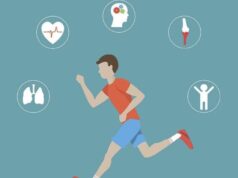
Mental health recovery is a journey that takes time, patience, and hard work. It involves addressing and healing the invisible wounds that often go unnoticed yet can profoundly impact our lives.
These invisible wounds can include past traumas, negative thought patterns, and unhealthy coping mechanisms. In this post, we asked a therapist at one of the country’s top outpatient mental health programs to give us some critical steps in recovery.

- Acknowledge the problem: The first step in recovery is acknowledging the problem. It can be challenging to admit that we are struggling with our mental health, but it is essential, to be honest with ourselves to begin the healing process.
- Seek help: Once we have acknowledged the problem, it is essential to seek help. This can include talking to a therapist, counselor, or psychiatrist and seeking support from friends and family. It is vital to find a professional who is a good fit for you and to who you feel comfortable talking.
- Learn about your condition: It is essential to educate ourselves. This includes understanding the symptoms, causes, and treatment options. This knowledge can help us better understand our condition and communicate effectively with our healthcare providers.
- Develop a plan: To achieve recovery, it is crucial to develop a plan. This can include setting goals, identifying triggers, and developing coping mechanisms. A plan can help us to stay focused and motivated throughout the recovery process.
- Practice self-care: Self-care is crucial in the recovery process. This includes taking care of our physical and emotional well-being. Prioritized activities that make us feel good.
- Join a support group: A support group can provide a sense of community and belonging. It can also offer the opportunity to learn from similar experiences. Support groups can be a valuable resource for learning new coping mechanisms and strategies for recovery.
- Be patient: Recovery is a journey, and it can take time. It is important to be patient with ourselves and to remind ourselves that progress is being made, even if it is slow.
- Stay positive: It is important to have a positive attitude throughout the recovery. This can be difficult, especially when we are feeling down. Still, it is essential to remind ourselves that recovery is possible and that we have the power to improve our mental health.
- Reward yourself: It is essential to reward yourself for the progress that you are making. This can help to reinforce positive behaviors and to keep us motivated.
- Never give up: Recovery is a journey that can be challenging, but it is important never to give up. It is important to remind ourselves that recovery is possible and that we can heal the invisible wounds holding us back.
It is also important to remember that recovery looks different for everyone, and there is no one-size-fits-all approach. What works for one person may only work for one person. It is important to be open to trying different strategies and not be discouraged if something doesn’t work.
Remember that recovery is a process rather than an endpoint as a final point. It’s critical to keep the big picture in mind and to realize that rehabilitation is a lifelong process that calls for constant work and upkeep. Having a strategy in place that you can use and modify as necessary is crucial. Remind yourself that setbacks are a normal part of the process, and treat yourself with kindness and respect.
The process of recovering from mental illness requires patience, persistence, and work. Recognizing the problem, seeking assistance, learning about our condition, developing a plan, practicing self-care, joining a support group, being patient, maintaining a positive attitude, rewarding ourselves, and never giving up are all critical. Remember that we have the ability to heal unseen wounds and improve our mental health.
What is mental health recovery and how does it differ from recovery from physical illnesses?

Mental health recovery refers to the process of improving one’s mental well-being, restoring hope and a sense of control, and regaining the ability to live a fulfilling life after experiencing a mental health condition.
Recovery from physical illnesses, on the other hand, generally focuses on treating physical symptoms and restoring physical function. While both types of recovery can involve a range of medical, therapeutic, and support services, mental health recovery also often involves addressing psychological and emotional factors, as well as addressing social and environmental factors that may contribute to or worsen mental health conditions.
Additionally, mental health recovery can be a more complex and ongoing process compared to recovery from physical illness, as mental health conditions may have more far-reaching effects on one’s daily life and can involve challenges with stigma and shame.
What are the key factors that contribute to mental health recovery?
- Hope and motivation: having a positive outlook and a sense of purpose can be crucial in promoting mental health recovery.
- Social support: having a supportive network of friends, family, or peers can provide emotional and practical support during the recovery process.
- Effective treatment: access to appropriate and effective mental health treatments, such as medication, therapy, or support groups, can be essential in promoting recovery.
- Coping skills: developing and using effective coping skills, such as stress management techniques or problem-solving strategies, can help individuals manage symptoms and promote recovery.
- Self-care: engaging in self-care practices, such as exercise, proper sleep, and healthy eating, can help improve physical and emotional well-being.
- Advocacy and empowerment: having a voice in one’s own care and treatment, and feeling in control of one’s life, can be key factors in promoting mental health recovery.
- Addressing environmental factors: addressing environmental stressors, such as poverty, trauma, or homelessness, can help promote mental health recovery by reducing stress and promoting stability.
What role does therapy play in mental health recovery?

Therapy plays a crucial role in mental health recovery by helping individuals address and overcome the psychological, emotional, and behavioral challenges that often accompany mental health conditions. Through therapy, individuals can gain insight into their thoughts, feelings, and behaviors, and develop new coping strategies to manage their symptoms. By working with a trained therapist, individuals can learn how to identify and challenge negative thought patterns, develop more effective communication skills, and improve their relationships with others.
In addition to these therapeutic benefits, therapy can also provide a safe and supportive environment for individuals to process and heal from past traumatic experiences. By exploring these experiences in a therapeutic setting, individuals can gain a deeper understanding of how these events have affected their mental health, and develop a more nuanced and effective approach to managing the symptoms and challenges that may result from these experiences. Therapy can also help individuals develop resilience and find new sources of meaning and purpose, which can be key factors in promoting mental health recovery. Ultimately, by working with a therapist, individuals can develop a comprehensive and effective plan for managing their mental health and achieving their recovery goals.
How can medication and other treatments contribute to mental health recovery?

Medication and other treatments that address the biological and physiological aspects of mental health conditions can play an important role in mental health recovery. Antidepressant and antipsychotic medications, for example, can help manage symptoms such as depression, anxiety, and psychosis, and provide individuals with a sense of stability and control over their symptoms. In some cases, medication can be an important part of the recovery process, assisting individuals in managing symptoms while working with a therapist to address underlying psychological and emotional factors.
Other treatments, such as cognitive behavioral therapy (CBT) and dialectical behavior therapy (DBT), can help individuals address negative thought patterns and behavioral challenges that may be contributing to their symptoms in addition to medication. Individuals can learn new coping strategies, improve their interpersonal skills, and develop a more positive and empowered outlook on their mental health through these therapies. Other treatments, such as electroconvulsive therapy (ECT) and transcranial magnetic stimulation (TMS), can be beneficial for people who do not respond to more traditional treatments and may offer a more targeted approach to symptom management.









